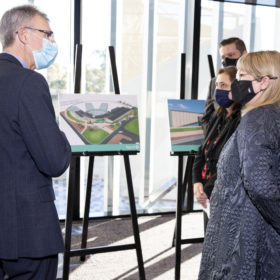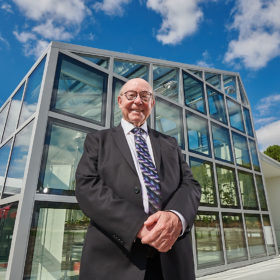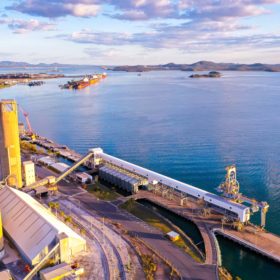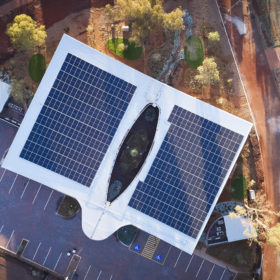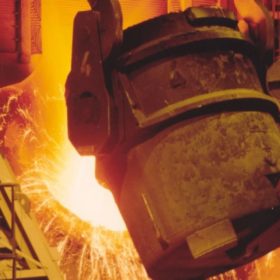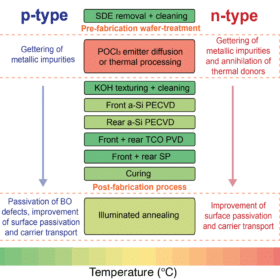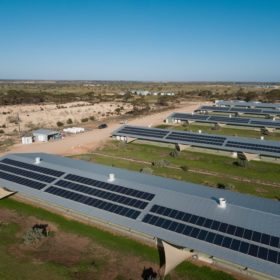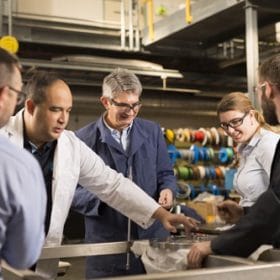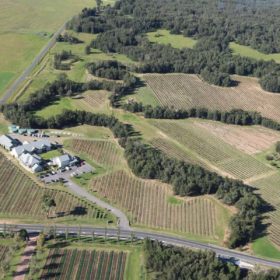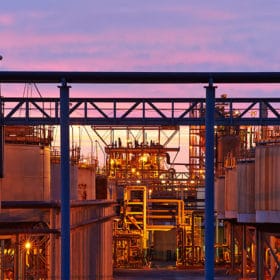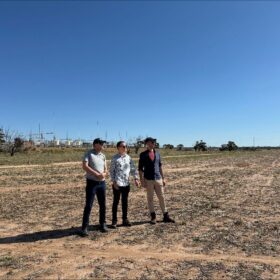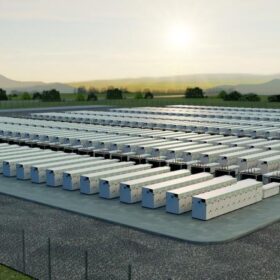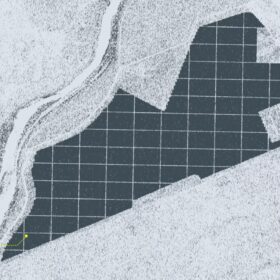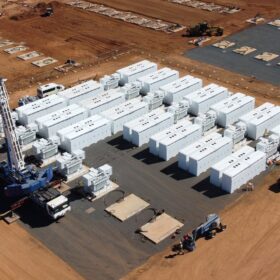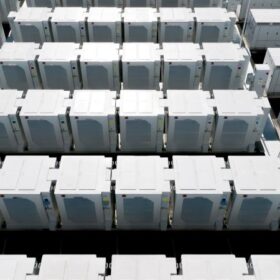Advanced battery and hydrogen research facilities to be built by Victoria’s Deakin University, backed by government funds
Deakin University has received funding for two multi-million dollar facilities, one devoted to advanced battery research and the second for the development of hydrogen technology. The projects’ aims will be to overcome hydrogen’s hurdles and, for batteries, to improve existing technologies while also investigating sustainable alternatives like sodium batteries.
Nanoparticles enable completely clear, industry-sized solar windows (yes, they’re finally here and targeting 5% efficiency)
The promise of solar windows have captivated scientists and engineers for decades. Now, West Australian company ClearVue says it not only has a fully transparent, scalable, industry-ready solar window in production, but it’s just 18 months away from cracking 5% efficiency, thanks to a research partnership.
WoodMac forecasts Australia’s low-carbon hydrogen export revenue to reach US$90 billion by 2050
Wood MacKenzie’s energy transition modelling is predicting a primacy in the future low-carbon hydrogen economy for Australia. Thanks to the country’s solar irradiance and renewable energy expertise, as well as its relative proximity to major off-taker markets, Australia could be looking at export revenues of up to US$90 billion by 2050.
AEMO analysis finds Western Australia on the fast track to energy system transformation
The Australian Energy Market Operator’s latest analysis of the Western Australian Wholesale Energy Market has found that investment in renewable generation and distributed solar is accelerating at a rapid pace, and importantly, that that acceleration is within the control of the state’s energy transition strategies.
ARENA launches $43 million program for industrial abatement studies as concern around mandate change grows
The Australian Renewable Energy Agency (ARENA) today announced the launch of its $43 million program aimed at identifying how to reduce emissions in industry. The program’s launch comes amid concern about proposed changes to ARENA’s funding mandate as the Commonwealth Government seeks to expand definitions to include funding for controversial technologies and fossil fuel projects.
A new UNSW review of research invites a rethink of silicon heterojunction solar cell manufacture
A review of existing research on any particular topic “should provide some novel insights”, says UNSW solar researcher Dr Matthew Wright. UNSW’s new paper shows defect engineering of SHJ solar cells has come a long way, but what if these proven efficiency gains could be better applied?
New IEEFA report sees South Australia as world’s energy transition model
The Institute for Energy Economics and Financial analysis (IEEFA) has published a report in which it points to seven key lessons energy planners the world over can take from South Australia’s extraordinary renewable energy integration. However, even South Australia, IEEFA’s model, still requires thoughtful planning and policy for the path forward.
Mission Possible: CSIRO launches $68 million Hydrogen Industry Mission
Australia’s national science agency, the CSIRO, has launched a collaborative “Team Australia” style mission bringing together actors from all aspects of hydrogen development and production toward the goal of driving costs below $2/kg and driving Australia toward hydrogen superpower status by 2030.
Microgrid research project aims to help farmers and the network
A microgrid research project taking place in four farming communities located in New South Wales and Queensland. Over 50 smart meters are collecting real-time energy data to determine models and microgrid solutions to help farmers struggling with high electricity bills, and to help the struggling network of energy infrastructure.
$11 million ARENA/Alcoa project to demonstrate efficient green alumina processing
ARENA and green-thumb Angus Taylor have launched a project to demonstrate that renewable energy can be cost competitive compared to fossil-fuel use in the processing of alumina — providing an incentive for one of Australia’s biggest industries to adopt this technology and offer low-carbon alumina to the world market.
